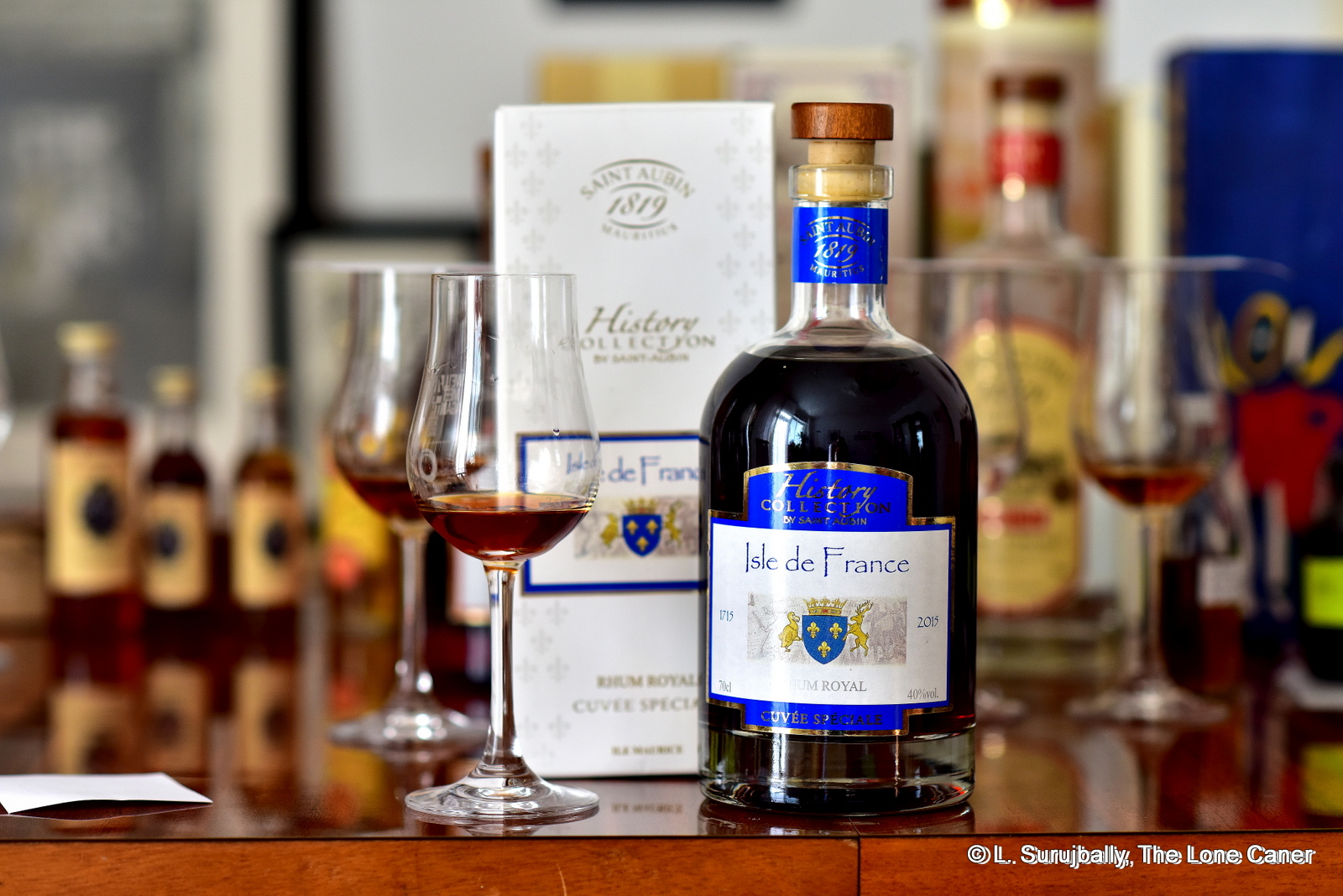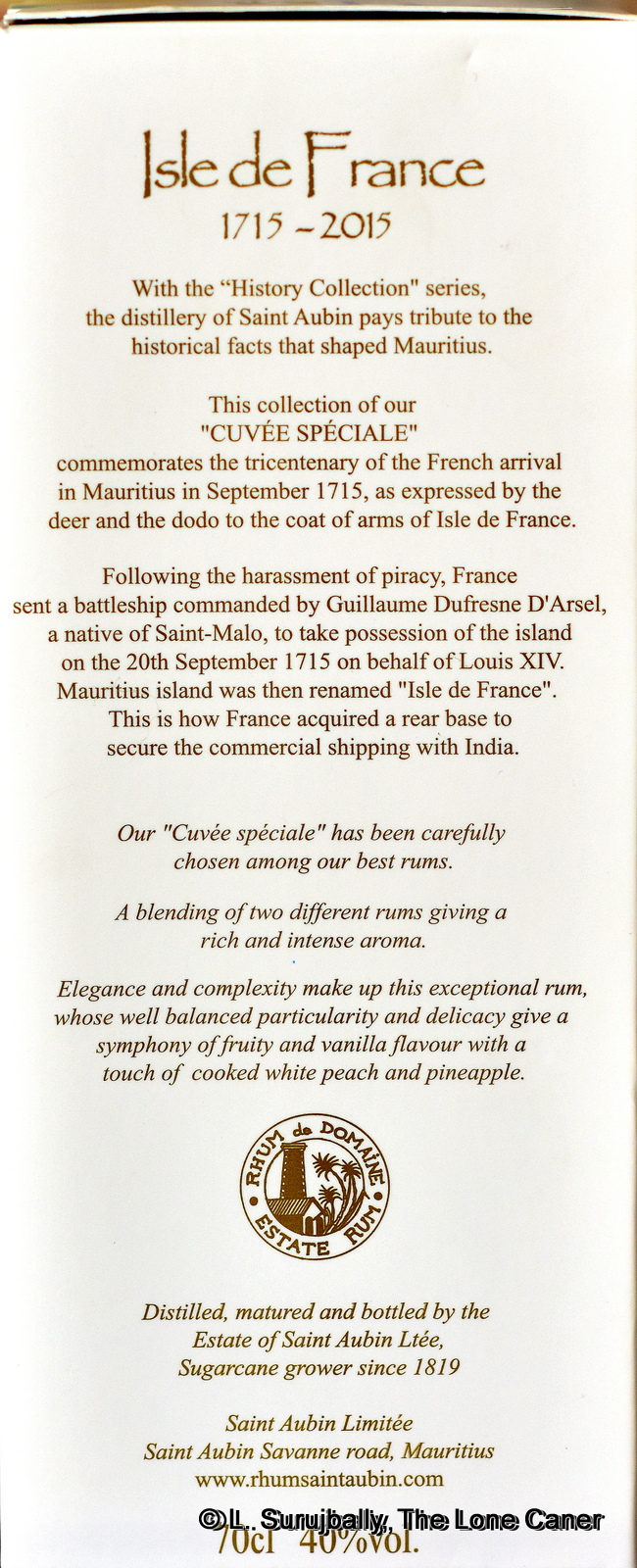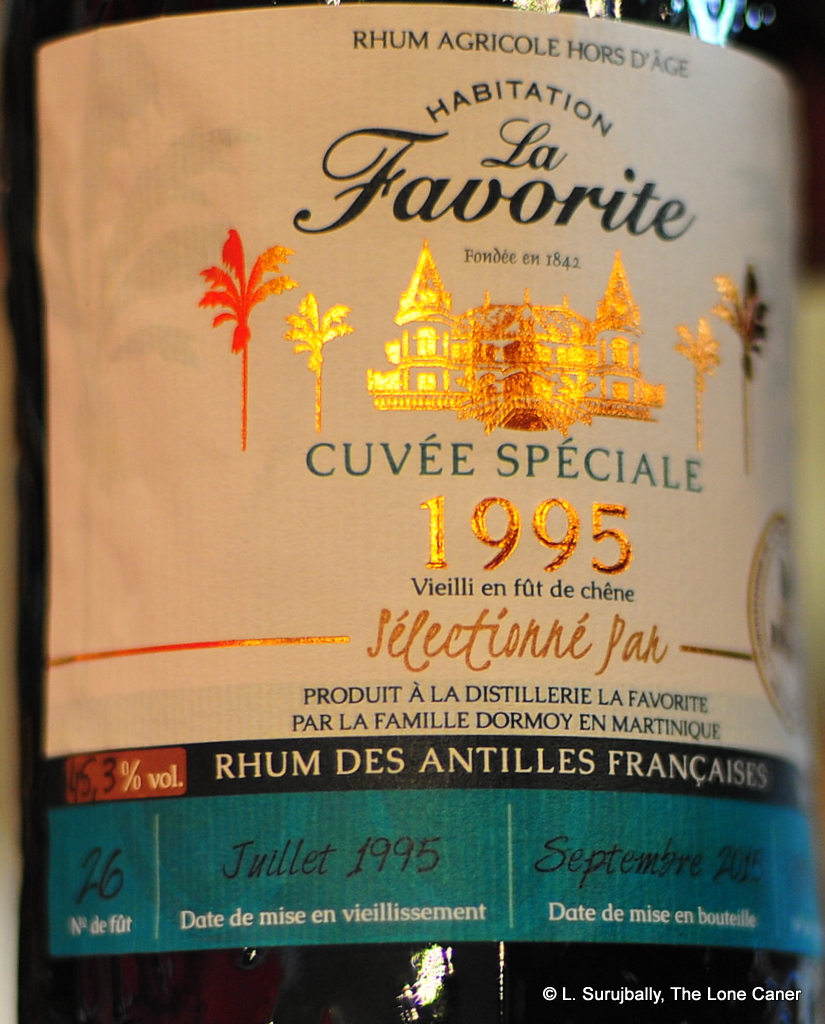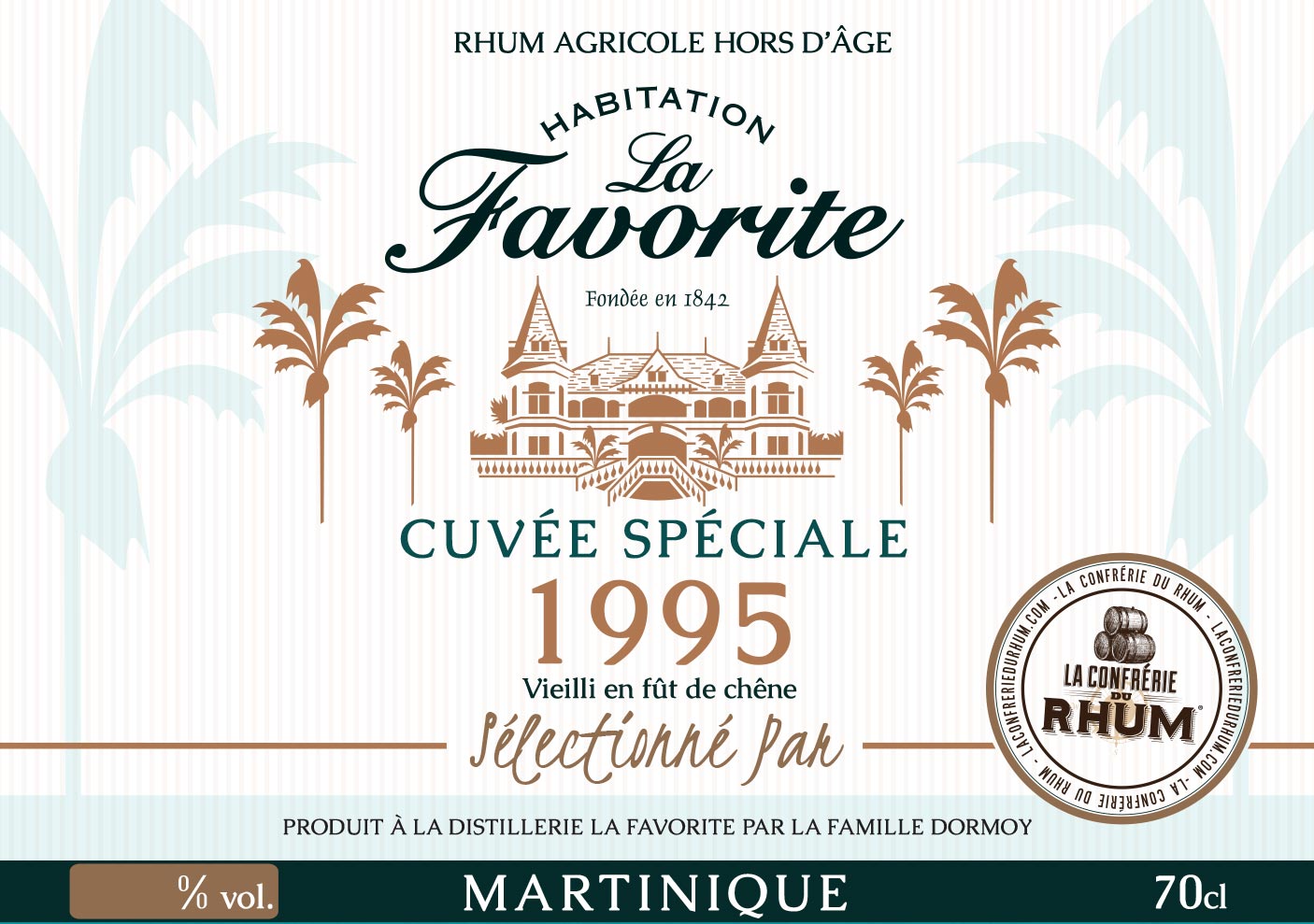
#481
The current focus on the Caribbean’s rums to some extent obscures interesting developments taking place elsewhere – for example the new Madeira rum from Rum Nation, French Guiana’s Toucan…and rums from St. Aubin in Mauritius, which are not particularly new, but certainly lack wider appreciation, perhaps because they don’t make it to the festival circuit as much as others do. Anyway, this rum, the Isle de France 1715-2015 is part of their “History Collection”, bottled at 40% for a wider commercial market, and commemorates the year of establishment of French rule over Isle de France for the French East India Company — prior to that it was named L’Ile Maurice, and was a haven for pirates, smugglers and the all-round lawless (in which it parallels the Caribbean, maybe) from whom all of us low-rent rum reviewers claim descent when in our cups.
 According to my email exchanges with the company, the rhum was produced from the harvest of 2005, and is a blend of two rhums – pot still (30%) aged ten years aged in ex-bourbon barrels, and column still (70%) stored in inert inox tanks; both distillates deriving from cane juice . As a further note, although sugar was explicitly communicated to me as not being added, caramel and “natural aromas” were – so some variation from the pure is to be expected and I don’t doubt that hydrometer tests will show the dosage.
According to my email exchanges with the company, the rhum was produced from the harvest of 2005, and is a blend of two rhums – pot still (30%) aged ten years aged in ex-bourbon barrels, and column still (70%) stored in inert inox tanks; both distillates deriving from cane juice . As a further note, although sugar was explicitly communicated to me as not being added, caramel and “natural aromas” were – so some variation from the pure is to be expected and I don’t doubt that hydrometer tests will show the dosage.
Certainly the caramel component was noticeable, and not just in the colour, which was quite dark – almost mahogany. The nose presented with sweet toffee notes almost immediately, and what was remarkable about it was also the surprising richness of it all – fruity to a fault, licorice, brown sugar, pineapple and peaches, balanced off (not entirely successfully) with oak and bitter chocolate. The rhum smelled sweet, like overripe oranges and bubble gum and that to some extent was intriguing…just somewhat overpowering after a while.
Fortunately it smelled more saccharine than it tasted. The palate was quite good, rather dry, and much more robust than I had been expecting from a standard strength product – sweetish, yes, also containing coconut shavings, pineapple, more peaches, light citrus, caramel and chocolate, coffee grounds, nougat, and – this is where I felt it faltered – also too much vanilla. The oak took a backseat here, the bitterness of the nose not so much in evidence and the finish was warm, short with bubble gum, licorice and dry, woody notes that were pleasant, just disappeared too swiftly.
Overall, this is quite a pleasant rhum, and strangely enough, given its cane-juice antecedents, it reminded me a lot of the El Dorado rums, particularly the 12 year old, where the dosage was also quite obvious; and it’s somewhat of a kissing cousin to the El Dorado 15 year old with respect to its panoply of flavours, specifically the licorice and chocolate. I think that attempts may have been made to emulate some of the high ester profile of the Savanna rums without blatantly ripping them off, and the dosage smoothened things out and provided some balance. At end, it’s a perfectly respectable mid-tier rum which is likely to find great favour in North America, perhaps less so in Europe.
History always fascinates me, so a few details here: the Domaine de St. Aubin, named after the first sugar cane mill established by Pierre de St. Aubin in 1819 or thereabouts, is located in the extreme south of Mauritius in the Rivière des Anguilles, and has been cultivating cane since that year – however the date of first distillation of spirits is harder to pin down – it’s likely within a few decades of the original opening of the sugar factory (there are records of the Harel family starting a distillery which is now New Grove in the 1850s; they also make the Lazy Dodo brand which I waxed lyrical about last year). In the late 1960s the Franco-Mauritian Guimbeau family – who made their fortune in the tea trade for which Mauritius is also renowned – acquired the estate and retained the name, and gradually developed a stable of rums produced both by a pot still (which produces what they term their “artisanal” rums) and a relatively recent columnar still for larger volume agricoles.
It’s a personal opinion of mine that alongside St. Lucia and Reunion, Mauritius is another one of those undiscovered countries we should be watching. Every day we read about the Jamaicans, Guyanese and Bajans; we regularly get another release from the famous rhum makers out of Martinique and Guadeloupe; and we kinda wish we could get more from St. Vincent and Grenada and other smaller Caribbean islands to round out the area, sure. However, let that not blind you to treasures made on the other side of Africa, on this small, rather-off-the-beaten-track island. Chamarel, New Grove, Penny Blue and Lazy Dodo rums are all good products, enlarging the scope of what rums are — but my advice is, don’t ignore the St Aubin rums either, because however middling my notes are, they have some pretty interesting wares, and deserve a good hard look by those who want something different and tasty, yet also not too far removed from the profiles of better known rums. It’s just close enough to more familiar products to evince a nod of appreciation and vague recall, while being a memory that remains tantalizingly elusive “Tastes oddly familiar,” I wrote after sampling the Cuvée Spéciale, “But damned if I remember precisely which one.” And that’s exactly as it should be.
(83/100)


